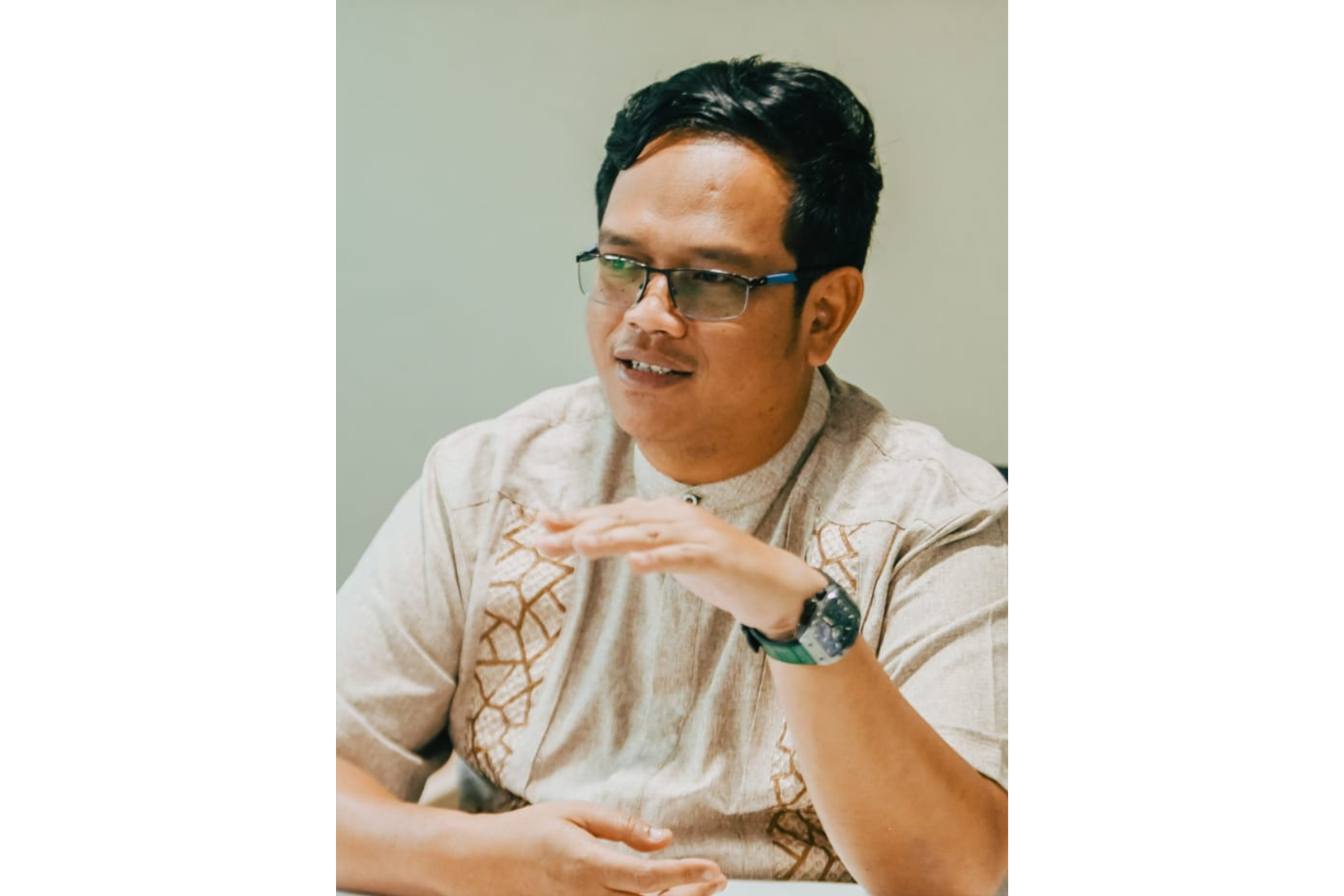
17 November 2025
Dari Semangat Menjadi Aksi: Perjuangan Yuni Arsiyanti untuk Perempuan dan Kesetaraan Gender
For Australia Awards alumna Yuni Arsiyanti, the pursuit of gender equality and the eradication of vi... Baca selengkapnya
Australia Awards adalah beasiswa dan studi singkat bergengsi yang bersifat transformatif, diberikan kepada para pemimpin masa depan untuk menempuh studi, penelitian, dan pengembangan profesional di Australia

19 Mei 2025
 Marroli Jeni Indarto: Memerangi Disinformasi dan Hoaks untuk Memperkuat Kepercayaan Publik terhadap Pemerintah
Marroli Jeni Indarto: Memerangi Disinformasi dan Hoaks untuk Memperkuat Kepercayaan Publik terhadap Pemerintah
As an official at the Ministry of Communication and Digital (Komdigi), Marroli Jeni Indarto works to ensure that government policies are clearly communicated, particularly to the general public. However, disinformation, misinformation, and hoaxes can erode public understanding and trust, even when policies are well-crafted and well-intentioned.
His work demands not only a solid understanding of how disinformation spreads but also the ability to build public trust in an information landscape increasingly shaped by social media.
‘Disinformation is spread by irresponsible parties or individuals, and it can delegitimise policies or efforts made by the government. Our job is to safeguard public trust in the government,’ said Roli, as he is known, who currently serves as the Ministry’s Director of Partnerships on Institutional and Public Relations Communications.
Faced with these complex and demanding responsibilities, Roli has sought to deepen his knowledge of false and misleading information. In October 2024, he participated in the Australia Awards Short Course titled, The Challenge of Misinformation & Disinformation: Fostering Information Integrity & Media Literacy in Democratic Societies, held at the Queensland University of Technology.
At the time of the course, Roli was serving as the Ministry's Director of Information and Communication for Politics, Law, and Security, and Indonesia had recently completed its monumental presidential and legislative elections.
The February 2024 elections saw voters cast their vote for presidential candidates and nearly 10,000 national and regional lawmakers in one day, making it the world’s largest single-day election. It also marked the fifth time Indonesian voters were able to vote directly for their candidates.
The election period kept Roli on his toes. It was crucial for his office to counteract disinformation and hoaxes to prevent them from escalating the already high political tensions that typically mark every polling period.
‘Hoaxes and disinformation were running rampant at that time. It was really a challenge for us to make sure that this false information did not disrupt the peaceful election. The experience further encouraged me to gain insights into disinformation,’ said Roli.
In 2024, the Ministry identified and clarified 1,923 pieces of content categorised as hoaxes, fake news, and false information. This marked an increase from 1,615 cases in 2023 and 1,528 in 2022.
False and misleading political information dominated the cases in 2024, accounting for 237 instances — or 12.3% — of the total pieces of content categorised as disinformation, misinformation, and hoaxes.
Public Participation in Tackling Disinformation
In the Short Course, Roli spent more than 2 weeks learning about disinformation, its characteristics in various countries, how to address disinformation, and the regulations for tackling false information.
‘The course sessions were intensive and packed with content. They helped me understand disinformation from both theoretical and practical perspectives,’ said Roli, who graduated with a Masters degree in Communication from the University of Indonesia in 2012.
As a developed country with a higher education level among its citizens, he observed that Australia experiences fewer cases of disinformation and hoaxes compared to Indonesia. Despite this, he noted that Australian authorities remain vigilant and actively involve the public in combating the problem.
‘Australia has only a few disinformation cases to serve as study examples, but it has a solid strategy in place to counter disinformation. For example, involving the community in fact-checking false information — this has become my reference in responding to public complaints regarding disinformation,’ he explained.
Roli added that Australia’s ban on social media for children under 16 years old, which was passed in November 2024, was the inspiration behind Indonesia’s Government Regulation (PP) on the Governance of Electronic System Implementation in Child Protection.
Signed by President Prabowo Subianto in March, the new regulation requires electronic system providers to filter content that could potentially harm children, provide an easily accessible reporting mechanism, and ensure a fast and transparent remediation process. Electronic systems could include social media, e-commerce, messaging services and gaming platforms.
‘We were inspired by Australia’s social media ban, but our regulation is broader in scope, encompassing all electronic system providers, not just social media,’ Roli said.
Building Government Communication Expertise
Roli joined Komdigi in 2012 as the Head of the Health Information and Communication Sub-Division, and has since developed his expertise in government communication. Some of the priority issues he has handled include communicating government policies on child stunting prevention, the COVID-19 pandemic, and the recovery of the national economy.
For Roli, working in government communication offers greater opportunities to learn how to effectively and clearly communicate information to the public, compared to corporate communication.
‘We focus on ensuring that all government representatives can communicate policies effectively to all levels of society, because our duty is to maintain public trust in the government,’ he said.
He cited the recent free health check-up policy as an example. Health officials and related agencies must have a consistent understanding of which tests are covered under the scheme, in order to avoid public confusion, he explained.
‘We need to foster strong communication between ministries and agencies to ensure coherent dissemination of government policies,’ Roli remarked. ‘Indeed, government communication has a broader scope than corporate communication, which is limited to a specific audience, such as investors and shareholders.’
Fostering Public Resilience
Another essential strategy to address the rise of disinformation, misinformation, and hoaxes, said Roli, was fostering resilience among audiences.
‘Digital literacy is important, but beyond that, audiences need to develop self-resilience — the ability to reject and avoid false information and claims,’ he said.
However, Roli acknowledged that building resilience against disinformation and misinformation was challenging.
For instance, he explained that in order for individuals to critically assess the accuracy of information, they needed to first have access to quality education and healthcare. In the health sector, he underscored that stunting continued to pose a risk to Indonesia’s younger generation, potentially affecting cognitive development and overall intelligence.
‘Disinformation and hoaxes should be viewed from multiple perspectives, not just through the lens of communication,’ he said. ‘I hope combating disinformation won’t be seen solely as the government’s responsibility, but as a shared effort involving multiple stakeholders — including journalists, activists, and local communities.’
Bagikan berita ini di:
 Berita Terkait
Berita TerkaitSitus web ini menggunakan cookie untuk meningkatkan pengalaman Anda menggunakan situs web. Kami juga dapat menggunakan cookie untuk menganalisis data situs web sehingga kami dapat meningkatkan layanan online kami. Untuk mengetahui lebih lanjut, kunjungi kebijakan privasi.
